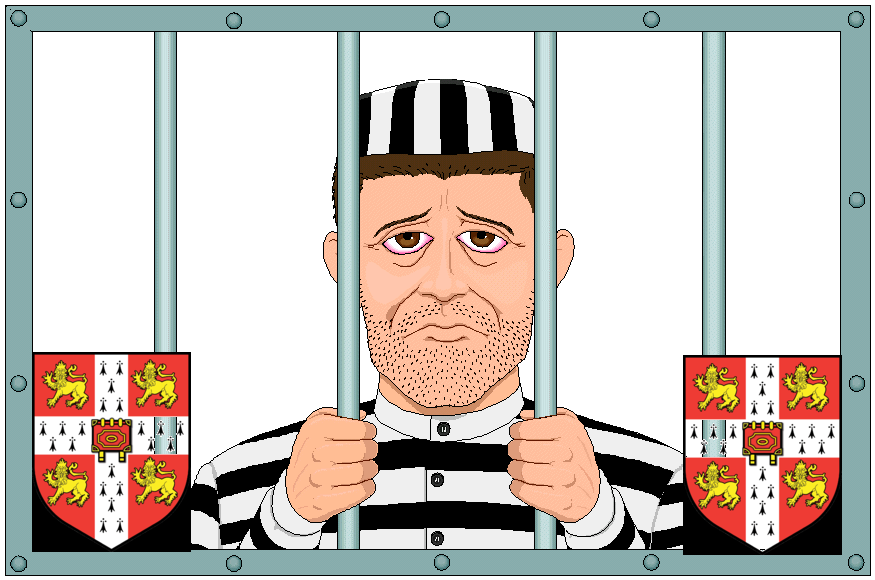A Comprehensive Exploration Of What A Total Institution Can Be Defined As
A total institution can be defined as a unique social system where individuals are cut off from the wider society and are immersed in an environment that regulates all aspects of their life. These institutions are characterized by their control over the daily activities, interactions, and even thoughts of their residents. Whether they are correctional facilities, mental health hospitals, or military boot camps, total institutions create a distinct separation between the institution's inhabitants and the outside world. This separation raises important questions about identity, autonomy, and the social dynamics at play within these environments.
In understanding what a total institution can be defined as, it is essential to recognize the implications it has on individuals. Residents often experience a loss of personal freedom and autonomy, leading to a redefinition of their identity and social relationships. The rules and regulations governing these institutions often dictate not only behavior but also the way individuals perceive themselves and others. This phenomenon can have profound effects on mental health, social skills, and the reintegration process upon leaving the institution.
Furthermore, the concept of a total institution prompts discussions about the effectiveness of such environments in achieving their intended goals. Are they successful in rehabilitating individuals, or do they perpetuate a cycle of dependency and further entrenchment in a system that can often feel dehumanizing? By delving into the characteristics and implications of total institutions, we can better understand their role in society and the consequences they impose on those who inhabit them.
What Are the Key Characteristics of a Total Institution Can Be Defined As?
A total institution can be defined as having several key characteristics that set it apart from other societal structures. These characteristics include:
- Isolation: Individuals are separated from the outside world, often physically and psychologically.
- Control: The institution exerts a high degree of control over the daily lives of its residents.
- Standardization: Uniformity is enforced through rules and regulations that apply to all individuals within the institution.
- Hierarchy: A clear power structure exists, with authority figures overseeing and managing the residents.
How Do Total Institutions Affect Individual Identity?
One of the most significant effects of a total institution can be defined as its impact on personal identity. Residents often find their former selves replaced by new identities shaped by the institution's rules and expectations. This can lead to:
- Loss of Autonomy: Individuals may struggle to make independent decisions.
- Reinvention of Self: Some may adopt new personas that align with the institution's values.
- Stigmatization: Residents may face societal stigma upon reintegration due to their institutional background.
What Role Does Social Interaction Play in Total Institutions?
Social interaction within a total institution can be defined as a complex web of relationships that influence the experiences of individuals. These interactions are often limited, structured, and regulated, leading to both positive and negative outcomes. For instance:
- Peer Relationships: Individuals may form bonds with fellow residents, which can provide support.
- Authority Dynamics: Relationships with staff can significantly impact the level of control and autonomy experienced.
- Isolation from the Outside World: Limited contact with family and friends can exacerbate feelings of loneliness and abandonment.
What Are the Types of Total Institutions?
A total institution can be defined in various forms based on the nature of its purpose and the individuals it serves. Common types of total institutions include:
- Prisons: Facilities for the incarceration of individuals convicted of crimes.
- Psychiatric Hospitals: Institutions designed for the treatment of mental health disorders.
- Military Boot Camps: Programs aimed at training and discipline for recruits.
- Residential Treatment Centers: Facilities for individuals struggling with addiction or behavioral issues.
What Challenges Do Residents Face in Total Institutions?
The experience of living within a total institution can be defined as fraught with challenges that can vary depending on the individual and the specific environment. Common challenges include:
- Emotional Distress: The lack of autonomy and control can lead to feelings of anxiety and depression.
- Social Isolation: Limited interactions with the external world can lead to feelings of loneliness.
- Adjustment Difficulties: Many individuals struggle to reintegrate into society after leaving the institution.
How Do Total Institutions Impact Reintegration into Society?
A total institution can be defined as having a profound effect on the reintegration process for residents. The transition back to everyday life can be challenging due to:
- Stigma: Individuals may face judgment or discrimination from society.
- Skill Deficits: Time spent in the institution may hinder the development of essential life skills.
- Support Systems: A lack of support from family or community can complicate the transition.
What Strategies Can Facilitate Successful Reintegration After a Total Institution Experience?
To enhance the process of reintegration into society following a total institution experience, several strategies can be employed:
- Therapeutic Support: Access to counseling and mental health services can aid in emotional recovery.
- Life Skills Training: Programs that teach essential skills for daily living can be beneficial.
- Community Engagement: Opportunities for social interaction and connection can foster support and acceptance.
- Family Involvement: Rebuilding relationships with family can provide a strong support system.
In conclusion, a total institution can be defined as more than just a physical space; it represents a complex interplay of social, psychological, and emotional factors that shape the lives of those within it. By understanding the characteristics, effects, and challenges of total institutions, we can work towards creating more supportive environments for individuals both during their time in these institutions and as they transition back into society.
Article Recommendations
- Helene Joy Partner
- Otto Kilcher
- Barbara Dobbs
- David Bromstad Twin Brother
- News About Kendrick Lamar
- Pete Rose Wife Age
- Shamless Actor
- Kylie Jenner Naked
- Is Simone Biles Pregnant
- Jake Gyllenhaal Height In Feet


